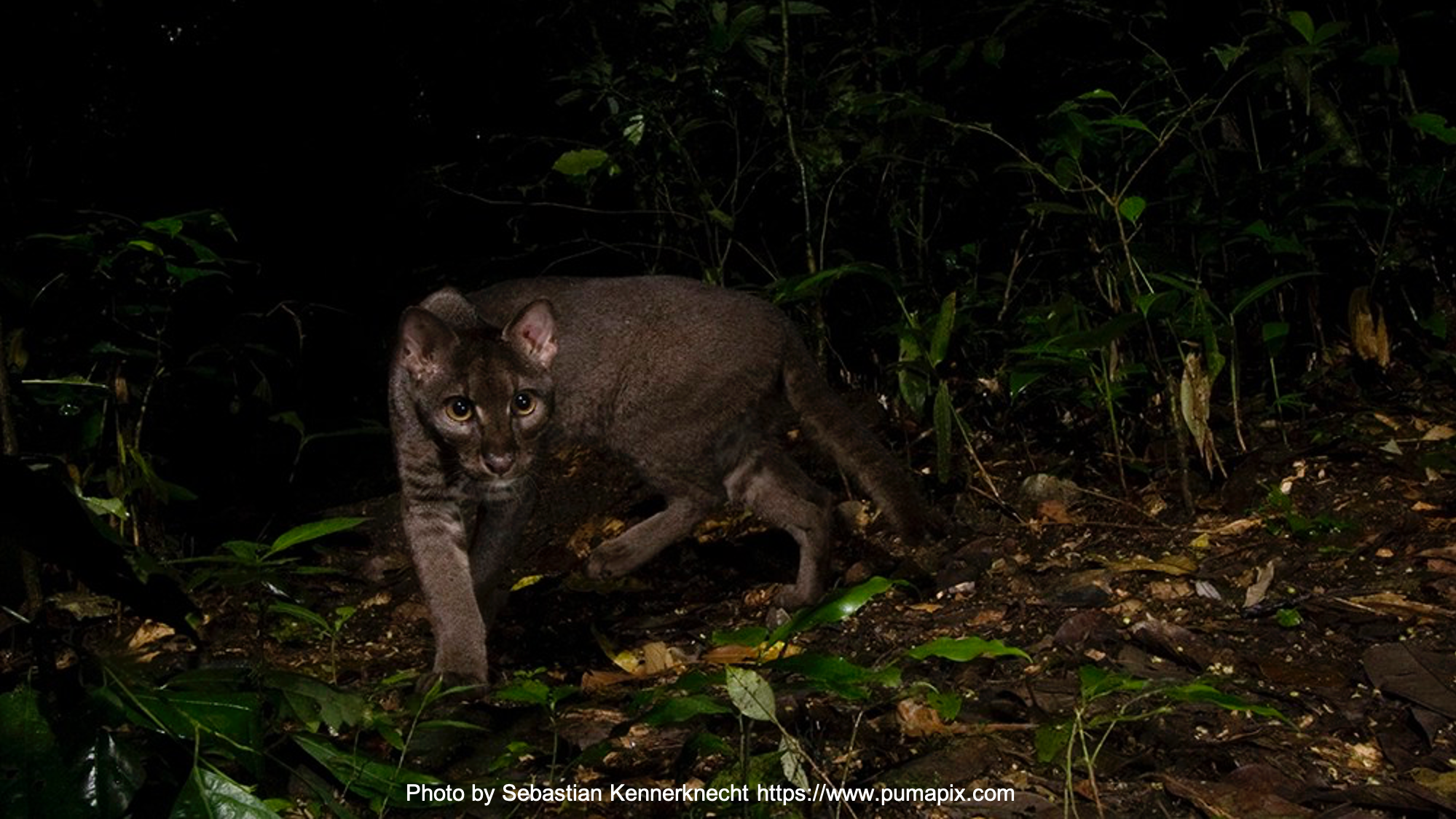News
WildCRU’s Diploma alumnus shortlisted for the prestigious 2022 Whitley Award
We are proud to announce that WildCRU’s Recanati-Kaplan postgraduate diploma alumnus Badru Mugerwa is shortlisted for the prestigious 2022 Whitley Award, for his conservation work to save the African golden cat in Uganda. The Whitley Award recognizes the work of grassroot conservation leaders working with local communities to create sustainable benefits for wildlife, habitats and local people.
Badru’s project, one of the 15 shortlisted, and brings a pioneering focus exclusively on the conservation of the African golden cat (Caracal aurata, which has been identified as Africa’s least studied felid). In Afrotropical rainforests where the leopard has been extirpated, like in Uganda’s Bwindi Impenetrable National Park where Badru has been undertaking wildlife conservation research since 2009, the African golden cat is the largest mammalian apex predator. The species is known in the local Rukiga language as “Embaka”, which is the name that Badru has given to the non-profit Community Based Conservation Organisation (CBO) for which he is the founder and director. While Embaka was only recently formally registered as a CBO (May 2021), it counts nine years of successful community-based conservation and ecological research on the African golden cat in and around Uganda’s protected areas since 2013. The proposed project, titled “Pigs, smiles and sounds: community based conservation tools against poaching of African golden cats” has mobilized >1,100 locals who have already pledged to support Embaka’s wildlife conservation efforts, by addressing root causes of poaching, which currently is the main threat to the survival of the African golden cat within protected areas. In only one year, an estimated 71 golden cats perished as bycatch in wire snares in three rainforests in southern Uganda, according to a recent study by Badru.
If Badru goes on to win a Whitley Award it will empower him to expand the ongoing conservation activities of Embaka, including establishing a 10-person community based anti-poaching team to assist the already organized 27 voluntary anti-poaching community watch groups with 243 members, as well as a real-time acoustic warning system of poaching activities within the protected area. Moreover, the project will link conservation and local livelihoods, by expanding community pig farming (as alternative source of protein and income to bushmeat) currently consisting of 76 animals and extending the much needed oral and dental care and treatment from the 177 who received the service last year to more in need in remote communities.
We wish Badru the best of success in the final stage of the 2022 Whitley Award, and look forward to providing him with all the support he may need in bringing the proposed project into fruition.
-
 ©Sebastian Kennerknecht
©Sebastian Kennerknecht -






